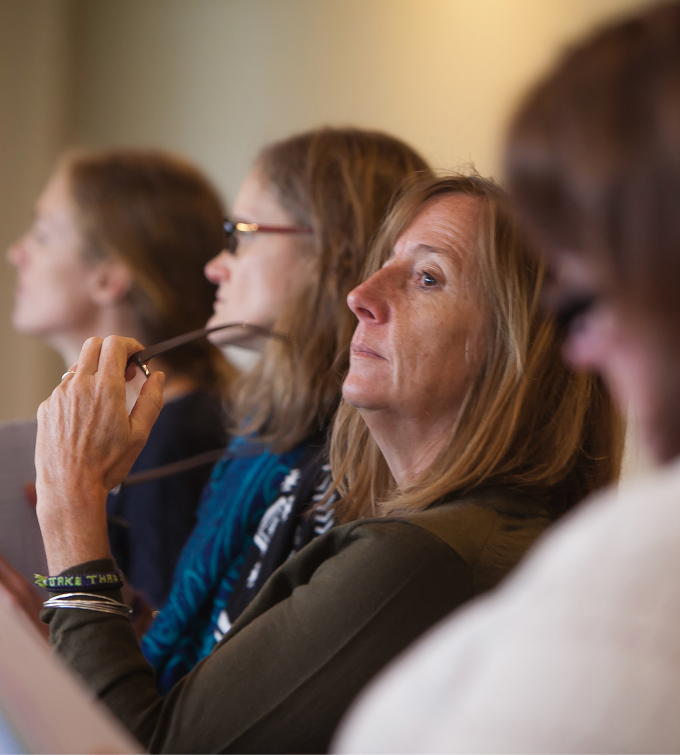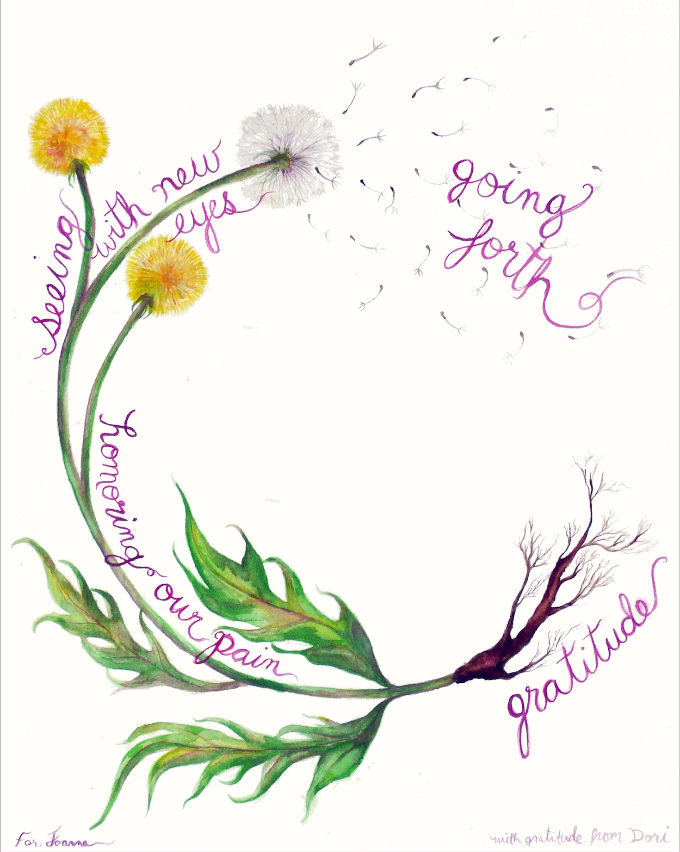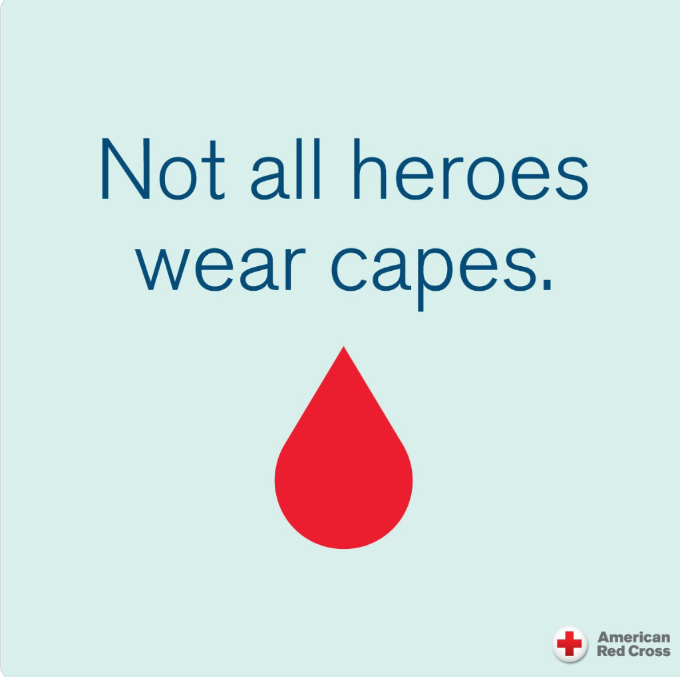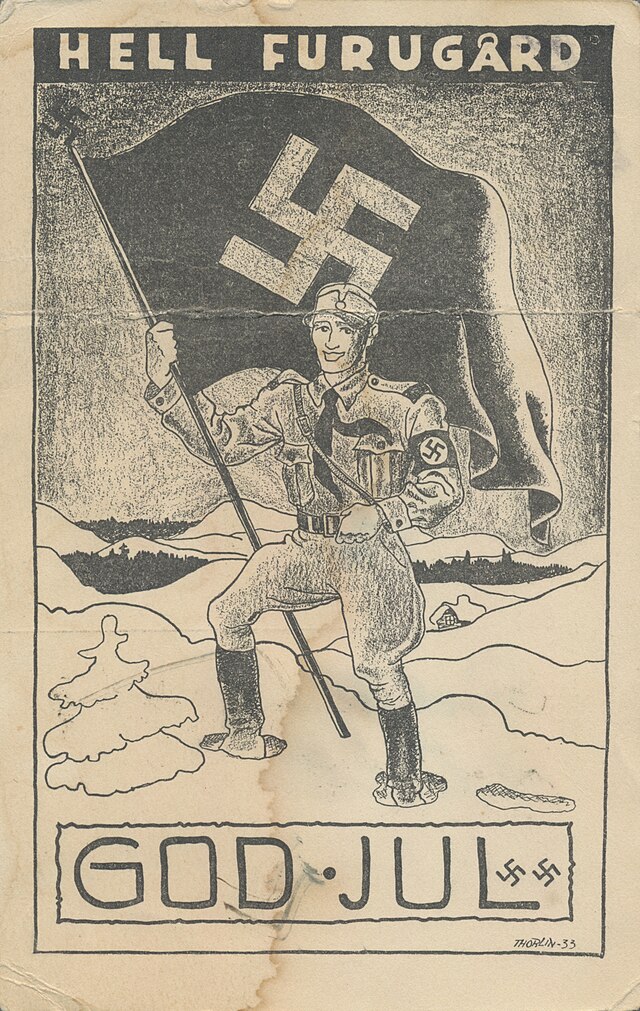October 10, 2025
Civics
"Couldn’t we devise an education that, rather than teaching citizens not to talk to strangers, instead teaches them how to interact with them self-confidently?”
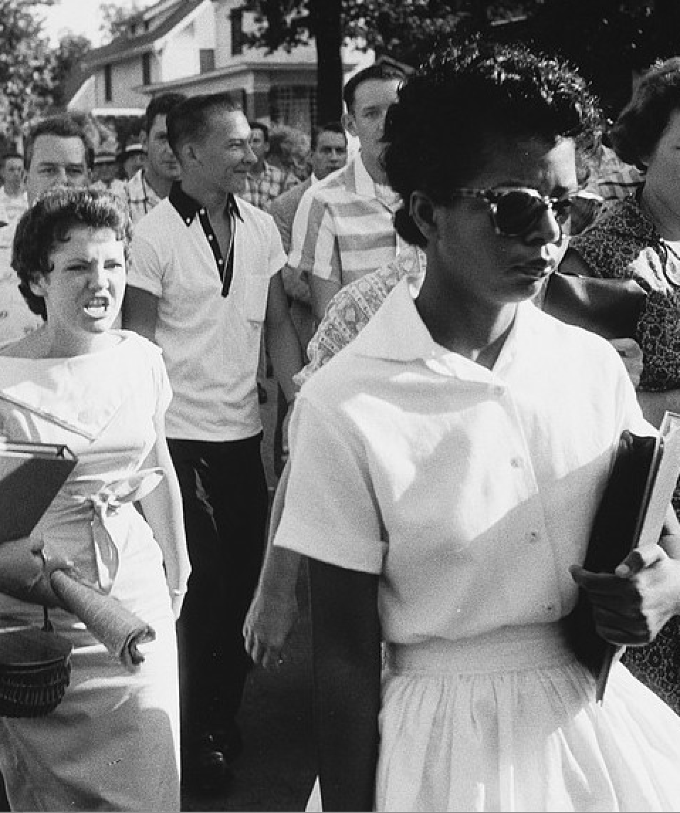
Black student Elizabeth Eckford is jeered by white student Hazel Bryan as she attempts to enter Little Rock Central High School on September 4, 1957. Danielle Allen uses the photograph to illustrate enduring anxieties in citizenship and interracial distrust in America. Photo by Will Counts via public domain.
Danielle Allen suggests that for many in the South, the civil rights movement of the 1950s and 1960s was, in effect, a reconsideration of the Civil War. In her 2004 book Talking to Strangers: Anxieties of Citizenship since Brown v. Board of Education, Allen examines American democracy through the lens of race and trust in the years following the landmark Supreme Court decision. She argues that the civil rights movement represented a series of internal “civil wars” within the former Confederate states—local struggles marked by sit-ins, protests, and fierce resistance to desegregation. These conflicts, she writes, mirrored the Civil War itself, as citizens on both sides contested authority, law, and the possibility of a shared civic future.
Through analysis of moments like the photograph of Elizabeth Eckford at Little Rock Central High School, Allen shows how the movement forced the nation to revisit unresolved questions about citizenship, allegiance, and justice. By turning to the federal government for protection and equal rights, Black Americans redefined the relationship between citizens and the state, reshaping the meaning of democracy in the process.
While her interpretation is sobering, her message is hopeful. Allen calls on readers to take up the redemptive work of rebuilding trust and “political friendship” across divisions. She envisions a form of citizenship grounded not only in legal equality but also in reciprocity—seeing and respecting one another’s needs. To talk to strangers, she writes, is to practice democracy itself: to share public space as equals, to repair the fractures of history, and to make inclusion a lived reality.
“Democracy depends on trustful talk among strangers and, properly conducted, should dissolve any divisions that block it. … The capacity to ‘talk to strangers,’ to hold a dialogue, to reason, and to deliberate with one’s fellow citizens in a context of civic trust … lies at the heart of democracy.”
“Unless we continually explore the network of complex relationships which bind us together, … we [will] continue being the victims of various inadequate conceptions of ourselves, both as individuals and as citizens of a nation of diverse people. The long-term ability of this democracy to convert distrust to trust is the reward.”
BOOK: Talking to Strangers. Anxieties of Citizenship since Brown v. Board of Education
